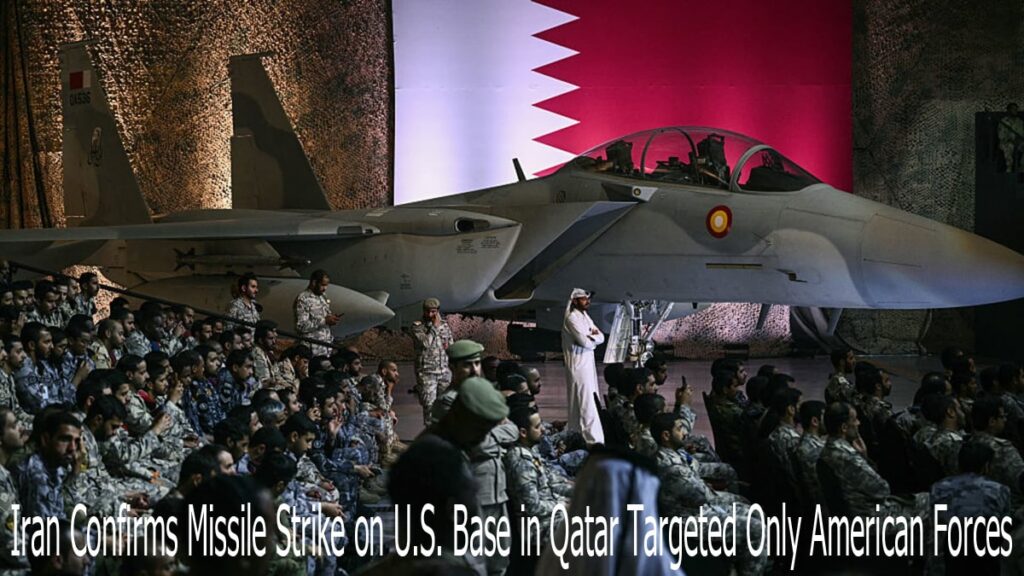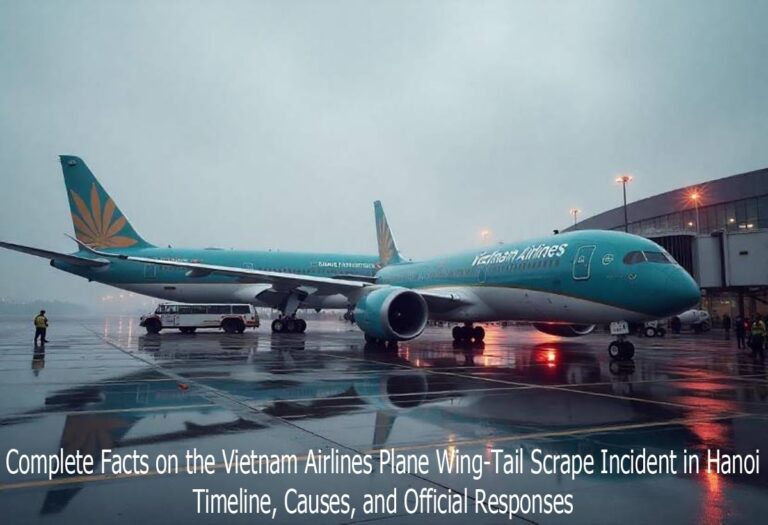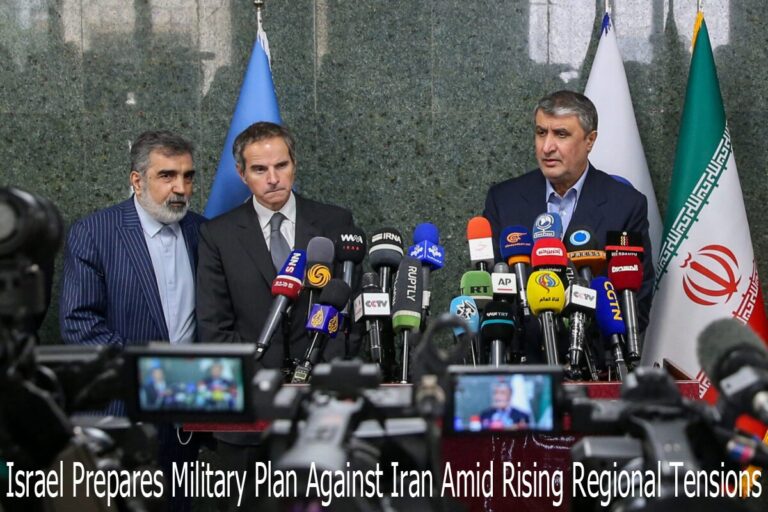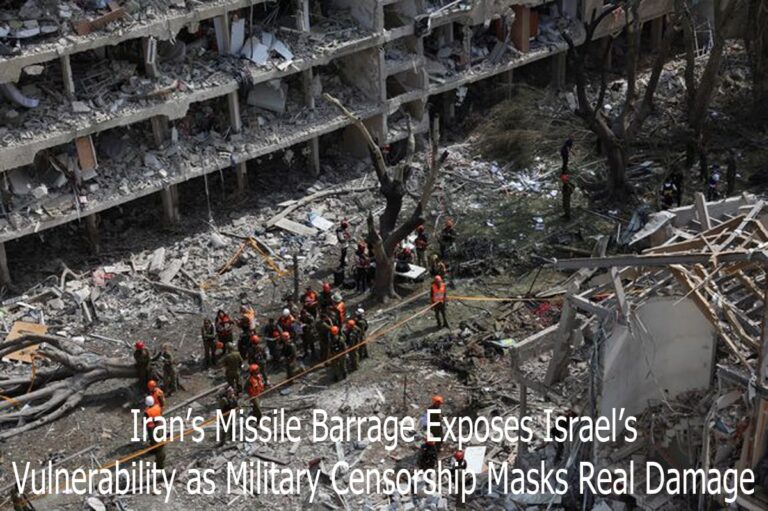
Iran Confirms Missile Strike on U.S. Base in Qatar
Iran has confirmed that its recent missile attack on the U.S. Al Udeid Air Base in Qatar was solely directed at American military assets. Not at Qatar itself. The announcement comes amid heightened tensions in the Middle East following U.S. Additionally, Israel is conducting military strikes against Iran’s nuclear sites. The hit was not meant to damage Qatar or its sovereignty, the Iranian government said, calling it a “measured and proportional response” to what it describes as American aggression.
The missile strike occurred late Monday, when Iran launched multiple short- and medium-range ballistic missiles at the Al Udeid Air Base, a key U.S. military installation located southwest of Doha. The base hosts approximately 10,000 U.S. troops and serves as a critical command center for operations across the Middle East.
Iran’s Supreme National Security Council released a statement assuring that the missiles were deliberately aimed away from populated areas and posed no threat to Qatari civilians. “The Islamic Republic of Iran has no hostility toward Qatar. This operation was directed solely at American military targets in response to recent violations of Iranian sovereignty,” the statement read.
Qatari authorities confirmed that the country’s air defense systems successfully intercepted the majority of the incoming missiles, and that the strike caused no casualties or serious damage. Qatar’s Ministry of Foreign Affairs, however, condemned the attack as a “clear violation of Qatar’s airspace and national sovereignty” and warned that Doha reserves the right to take appropriate action in defense of its territory.
U.S. defense officials also confirmed that American personnel were unharmed and that the damage to facilities was minimal. A Pentagon spokesperson described the incident as “a calculated demonstration of force by Iran, which fortunately resulted in no loss of life.” President Joe Biden addressed the situation in a brief statement, noting that the U.S. does not seek war but will take all necessary steps to defend its forces in the region.
The incident comes just days after U.S. bombers, in coordination with Israeli forces, carried out airstrikes on Iranian nuclear infrastructure. Iran’s leadership vowed retaliation, and many analysts believe the strike on Al Udeid was chosen both for its symbolic value and for the opportunity to send a message to Washington without directly harming third parties.
“This was a deliberate and carefully calibrated move by Tehran,” said Dr. Rana Al-Sheikh, a Gulf security analyst based in Dubai. “They needed to respond, but they also needed to reassure Qatar and avoid triggering a broader war.”
Reactions from other Gulf nations were swift. Bahrain, Kuwait, the United Arab Emirates, and Saudi Arabia all released statements denouncing the Iranian strike and showing support for Qatar. All sides were urged by the Gulf Cooperation Council to exercise moderation and hold diplomatic talks in order to prevent further escalation.
European leaders and the United Nations also weighed in, with French President Emmanuel Macron urging both Iran and the United States to “step back from the brink” and prioritize diplomacy over military action. UN Secretary-General António Guterres said he was “deeply concerned” and called for all actors to respect international law and the sovereignty of neighboring states.
Meanwhile, Iranian officials suggested that the operation should be seen as a final warning rather than the start of a prolonged military campaign. Iran’s Foreign Minister stated that Tehran remains open to negotiations—provided that foreign aggression, particularly from the U.S. and Israel, comes to a halt.
Although this event has been mostly contained, the area is nonetheless on high alert. U.S. military bases throughout the Gulf have reportedly increased their readiness levels, while Iranian forces continue to monitor U.S. and Israeli activities closely.
For now, the missile strike on Al Udeid appears to have served as a strategic signal from Tehran: a forceful response calibrated to avoid civilian casualties or international isolation. Whether it marks a turning point toward de-escalation or the prelude to further confrontations remains to be seen.
As diplomatic efforts intensify behind the scenes, much will depend on how Washington and Tehran choose to proceed. The world watches closely as two adversaries—linked by decades of mistrust and a volatile regional context—walk a tightrope between retaliation and restraint.






